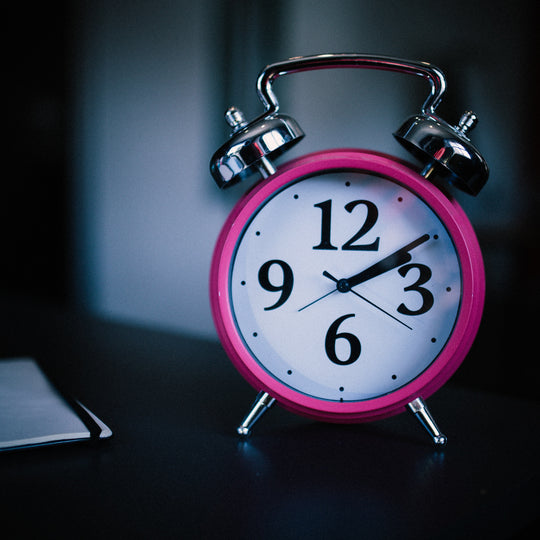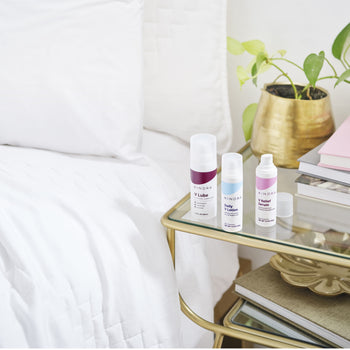Does this sound familiar to you?
You've had a long day of work, errands, and dinner with friends. You finally arrive home, it’s late and you’re tired. You're in bed, looking at your alarm clock...negotiating. If you fall asleep now, you’ll get exactly 7.5 hours of sleep—just enough to get you through the next day.
An hour passes.
You're tossing and turning, pulling the sheets on, then kicking them off, because night sweats are no joke. Another hour passes, so you cut on the TV and watch something boring, in hopes you'll doze off. No such luck.
You perform this nightly routine for the hundredth time with no end in sight. Could this be insomnia?
If like me, you are dealing with menopause symptoms, you too may be experiencing insomnia. According to the National Sleep Foundation, insomnia is difficulty falling asleep or staying asleep, even when you have the chance to do so. It’s important to note that insomnia isn’t characterized by the occasional restless night, diet, emotional disturbances, or illness. True insomnia is consistent and sometimes persistent, despite your relaxing bedtime routines. Menopause-related insomnia is especially difficult because your sleep is affected by symptoms you can’t necessarily control such as hot flashes, mood swings, and drastic changes to your sexual drive.
When I first experienced insomnia, I denied it. I was angry my body was going through this change when I wasn’t ready for it. My highs were trumped by my lows and I felt embarrassed—especially while I was experiencing menopause in my twenties. I had to learn to cope with menopause rather than fight it. I had to make some changes. I started by having one less glass of wine with dinner to ward off restlessness before I went to bed. I realized I was depending on the wine to help relax me. When that didn’t work, I moved on to plan B—sex. I tried different positions thinking that would help me relax, but I only ended up irritated by vaginal dryness and a lack of sleep. So, I moved on to plan C—exercise and chamomile tea. I ended up losing a few pounds and having to use the bathroom all night. Trying these things helped me sleep a little better, and one day, sleep simply found me. I rested for what seemed like days and things were back to normal for me.
What ultimately worked for me was I stopped fighting insomnia and my other menopause symptoms and instead embraced the changes I was experiencing. Menopause is a part of life, it is not the enemy. If you can learn anything from me, try a few things out to help you cope with insomnia and its effects. Hopefully, you won't lose any sleep over it.
NOTICE: KINDRA DOES NOT PROVIDE MEDICAL OR HEALTH CARE ADVICE. OUR EMPLOYEES AND OTHER REPRESENTATIVES ARE NOT PHYSICIANS OR HEALTH CARE CLINICIANS. YOU SHOULD CONSULT YOUR PERSONAL PHYSICIAN FOR ANY MEDICAL AND/OR OTHER HEALTH CARE ADVICE BEFORE ACTING ON ANY INFORMATION PROVIDED BY KINDRA OR ANY OTHER SOURCE.
Leave a Reply
Tags: About Menopause Anxious body Connection Dry Skin Fatigue Hot flashes Low Sex Drive Managing my Hormones Mental Well-Being Moody & Irritable Night Sweats Physical Well-Being Trouble Sleeping Vaginal Dryness













